1.2.4 The decisions of 1832-33. State status of homeopathy in Russia
The objections of the Russian medical administration, i.e., the Medical Council [Meditsinsky Sovet] at the Ministry of Interior, were brought together in the report "Conclusions of the Medical Council regarding treatment according the homeopathic method", received on December 15, 1831 and published in No. 3 of "Zhurnal Ministerstva Vnutrennih del" (Journal of the Ministry of Interior) in 1832. After having briefly described Hahnemann’s doctrine, the Council began to marginalize the new method:
This new speculation had no influence upon medical practice and became a subject of strong and true criticism, which was deserved by the groundless accusations toward allopathy and by its absurd, exaggerated and one-sided speculations [...]. Yet as any novelty strongly influences minds, especially of those who are inexperienced, it is no surprise that also homeopathy, according to an innate inclination of man to believe in anything unusual and mysterious, led many people to be carried away from the true way [...]. 50
I find it redundant to regard the "Conclusions" in detail. The "Conclusions" mainly dealt with the statistics obtained from homeopathic departments at the Toulchin and St. Petersburg Military hospitals, where treatment was provided by Dr. Herrmann, as compared with the statistics obtained from allopathic departments of the same hospitals. The statistics from the St. Petersburg Military Hospital and general conclusions on the homeopathic method of treatment were submitted to the Medical Council by Dr. Giegler. These statistics cannot be interpreted in the terms of today. First of all, there were then no nosologically defined diseases; such "diseases" like consumption [chakhotka] and dropsy [vodianaia bolezn’ or vodianka] certainly could not be randomized and compared. 51 Secondly, for some obscure reason homeopathic departments were hindered from hospitalizing several groups of patients (see below), whose comparative treatment could have been especially demonstrative. The conclusion was the following:
The Medical Council repeatedly announced its opinion regarding the groundlessness and uselessness of the homeopathic method of treatment.
It is not possible for homeopathy to be permitted in military and other hospitals for the following reasons:
1. Those fulminating diseases that attack suddenly, like apoplexy, paralysis, malignant fevers and Cholera indica demand especially urgent and energetic medical help, which is not possible by homeopathy.
2. Concussions of the brain, intracranial hemorrhages, indomitable bleedings from lungs, womb, bladder and other internal organs, demanding urgent help, cannot be treated with the homeopathic method.
3. Strong inflammations of brain, lungs, stomach, intestines, liver, womb, urinary organs and other important internal organs, cannot be healed with homeopathy, except the easiest grade of inflammation, which sometimes pass over without any treatment.
4. Gastric, bilious and septic inflammations also require long-term treatment, not compatible with the homeopathic theory.
5. Such external diseases like contusions, dislocations, bones’ fractures, injuries of soft tissues, bullet and other wounds [...], strangulations of hernias, prolapsus of internal organs, curvatures of joints [...] and many other diseases fall outside the range of homeopathic treatment.
6. Bones’ excrescencies, muscle tumors [...] and cancer cannot be treated with homeopathy.
7. Scurvy, chronic rheumatic pains, different kinds of dropsy and consumption, are treated in the hospitals with allopathy; homeopathy cannot be applied at all.
8. Venereal disease [i.e., syphilis] in its many varieties [...] is being treated by homeopaths, but the results of this treatment are rather unfavorable.
9. In different eruptions, both acute and chronic [...] the homeopathic method of treatment is irrelevant and useless.
When excluding these important and dangerous [...] diseases, only mild feverish and inflammatory diseases, which pass by themselves by keeping to the right diet, the right mode of life and cleanness of body [...], remain.52
Thus, in its conclusions the Medical Council mainly demonstrated its total ignorance and lack of belief in homeopathy, and the absolute unacceptability of the practice of homeopathy. It also remains obscure who informed the Medical Council regarding the impossibility to treat all the above mentioned diseases with homeopathy. In any case, I have not been able to find any connection between the results of Dr. Herrmann’s treatment and these conclusions, also because it was not mentioned which diseases he treated. The opinion of Dr. Giegler concerning "similar diseases" and the comparison of the mortality rates can hardly be considered to be fair in the light of his definitely biased attitude toward homeopathy.
The Medical Council considers its duty to remark that [...] some doctors appointed by the local administration to serve in military and other hospitals, do apply homeopathy without being permitted to do so by the Higher medical authority [i.e., Medical Council]. In order to prevent such actions, which violate the laws currently in force, the Medical Council finds it necessary to absolutely forbid homeopathic treatment in Land, Naval and Civil Hospitals both for doctors from other ministries and for staff physicians, without the permission of the medical administration Highly entrusted with managing these institutions [hospitals]. 53
The inquiry of Dr. Cherminsky was regarded in the very same spirit.
It turned out from the petition of the Podol’ and Volyn’ Temporary Military Governor and from the inquiry of Dr. Ch. [sic] attached to it, as well as from the testimony of the Bureau at the Zhitomir Military-Temporary Hospital, that Dr. Ch. treated in that hospital during a period of 24 days, 122 patients who had been suffering from different diseases [...], whilst 55 recovered, 1 died and 66 remained in treatment.
Finding nothing new and deserving attention in this method of treatment [by Dr. Cherminsky], the Medical Council considers [...] it by far similar to the expectant method which had been applied in 1829-30, in the [St. Petersburg] Military Hospital. The advantages promised by Dr. Ch. are exaggerated and impossible. [...]. These advantages over the usual method of treatment [...] have not been proven, representing only suppositions, contradicting [...] common sense. The soldiers have become incapable for military service not because of fevers or mild inflammations, the only diseases that are being treated by homeopaths, but exclusively because of severe injuries and serious diseases [...]. Since homeopaths refuse to treat external diseases as well as those listed above, one may ask what the government would do with the patients who do not fall under the homeopathic treatment? The number of those [who cannot be treated with homeopathy] represents more than a half of all patients who have been hospitalized and, according to the homeopathic laws, should remain without any [medical] support at all, falling victims of a few doctors who have lost the true way, being infatuated by their false doctrine. 54
Bojanus could not keep his indignation:
This is the opinion of the Medical Council, the assembly of scientists and authoritative men, who were appointed by the higher power to protect the people’s health: whilst suppressing its conscience, it declares that homeopathy is powerless against cholera! Thus, even those facts which had been vindicated publicly before, were unable to lead a ray of sun to their callous hearts! [...]. In order to represent this "Decision" in the true light, it will be sufficient to say that one of those who [...] approved this document, was the physician-in-ordinary Marcus, who [...] had considered homeopathy [several years before] as ‘a method ... attracting the attention of all sensible doctors’. 55
I agree with Bojanus that the above cited "Conclusion" hardly deserves to be discussed seriously. From the very beginning of the "Conclusion", the Medical Council asserts that the Hahnemann’s doctrine is nothing but "absurd speculation". All further assertions were thus adjusted to this allegation. There are no references to Dr. Herrmann or to other homeopaths, all of whom have allegedly refused to treat any diseases but "fevers and mild inflammations, which pass by themselves". The selection of the patients for homeopathic treatment also seems to be suspicious. On the one hand, no patients suffering from the most fatal diseases, like consumption and dropsy, were hospitalized in the homeopathic department. On the other hand, neither patients suffering from milder diseases, like venereal, eye and skin diseases were hospitalized in the homeopathic department. The statistical comparison was based upon assertions of Dr. Giegler, who could by no means be suspected of sympathy toward homeopathy.
The experiments of Dr. Herrmann were not left without attention in the contemporary homeopathic literature, but the facts were sometimes misrepresented. Bradford remarks:
Up to the year 1835, there were six public and formal trials of homeopathic practice undertaken by order of governments [...]:
1. At Vienna in 1828, conducted by Dr. Marenzeller
2. at Tulzyn, Russia, in 1827
3. at St. Petersburg in 1829-30 by Dr. Hermann [sic]
4. at Munich in 1830-31 by Dr. Attomyr
5. at Paris in 1834 by Dr. Andral Jr.
6. at Naples in 1835 by order of the King by a mixed commission in the hospital of La Trinité.
These were all made by allopathic physicians and were not considered by members of the homeopathic school as fairly conducted. 56
Unfortunately, Bradford failed to stick to the facts. The experiment in Toulchin was in 1829, and not in 1827. Dr. Herrmann (not Hermann) was not an allopath, and "members of the homeopathic school" never charged him for an "unfairly conducted" trial.
Baronet Yacov (James) Wylie
(1768-1854)
The Medical Council was subordinated to the Ministry of Interior and to the Military Ministry, and the latter to the State Council. The "Conclusion" would have had no real power if these institutions would have resisted it. A substitute of the Minister of Interior, Count Nicholas Novosil’tsev (1768-1838) [See : The Great Russian Brockhaus and Efron Encyclopedia] approved the "Conclusion" but he made an important amendment: instead of the proposed absolute prohibition of homeopathy in hospitals, he remarked that homeopathy may be used by doctors in hospitals under the responsibility of the Senior Doctor of the hospital. 57 Allopaths were more successful in the Military Ministry, where Minister Alexander I. Chernyshov (1785/86 - 1857), after having acknowledged the opinion of the Chief Military Inspector, Baronet Yacov (James) Wylie (1768-1854) [See : The Great Russian Brockhaus and Efron Encyclopedia], 58 prohibited homeopathy from use in military hospitals. The place of Novosil’tsev was later occupied by Count Dmitry Bludov (1785-1864) [See : The Great Russian Brockhaus and Efron Encyclopedia] who agreed with the opinion of the Medical Council and Baronet Wylie. 59
Count Dmitry Bludov
(1785-1864)
Henceforth, allopaths succeeded in prohibiting homeopathy in hospital practice. Yet these decisions were mere ministerial instructions, which could be changed later on. Moreover, private homeopathic practice was not influenced by these instructions. In order to forbid homeopathy entirely, the State Council had to pass a law. Consequently, it was proposed (probably, by interest groups) to the State Council to approve the "Conclusions" as a law.
Count Alexander N. Golitsyn
(1773-1844)
At this stage the situation changed because of the resistance of such members of the State Council like Minister of Education Count Alexander N. Golitsyn (1773-1844) [See : The Great Russian Brockhaus and Efron Encyclopedia], State Controller Alexey Khitrovo (1776-1854) and, especially, Count Nicholas Mordvinov, an influential member of the State Council, who had been for several years an ardent adherent of homeopathy, had written a brochure on homeopathy, and had supported homeopathy actively. Bojanus especially stressed that a legislative initiative was presented at the meeting when Mordvinov was absent. 60 Golitsyn and Khitrovo rejected this initiative. They insisted that a special committee including several homeopaths (Drs. Adam, Trinius and Herrmann took part) should be established. After having had several meetings, the committee worked out a report and submitted it to the State Council.
On September 26, 1833 the State Council accepted the following decisions concerning the future of homeopathy in Russia.
1. Homeopathic treatment may be applied [...] by licensed physicians only.
2. Homeopathic pharmacies in St. Petersburg and Moscow are allowed to be established. These pharmacies have to provide all provincial pharmacies and homeopathic doctors in Russia. [...].
3. The establishment of homeopathic pharmacies as well as their management, are allowed only to pharmacists licensed by the Board. [...].61
According to the rules edicted in chap. 4, homeopathic doctors were also allowed to offer homeopathic medicines from their own kits in emergency, in two closed envelopes, (one - for the patient, the other - for future investigation in case of the patient’s death). 62
4. Homeopathic doctors are allowed to prescribe homeopathic medicines to be obtained from allopathic pharmacies [...] if these medicines are prepared there.
5. The price for homeopathic medicines shall be defined according to the Apothecary Rates.
6. Reports on the action of homeopathic treatment should be presented monthly to the Physikat and Medical Office [Meditsinskaia Kontora] in the main cities, and to the Medical Boards [Vrachebnye upravy] in the districts [gubernii] [...].
7. The Physikat, Medical Office and Medical Boards are allowed to invite homeopathic doctors to be consulted regarding matters concerning homeopathy.
8. The supervision for carrying out these instructions, the help of the Physikat and Medical Office in the main cities and the Medical Boards in districts, should be enforced. [...]. 63
I do not find it necessary for the present study to cite the critics of Bojanus on the "Decision", mainly justified. 64 The most important thing is that homeopathy received its official status within Russian medicine. Later the "Decision" was often misinterpreted by Russian homeopaths who considered that the hospital practice of homeopathy is prohibited according to this document. Yet this point of view is doubtless wrong. The "Decision" prohibited nothing. Homeopathic treatment in hospitals was prohibited by the "Conclusion" of the Medical Council, whilst the "Decision" made no difference between out- and in-patient treatments. Moreover, even the "Conclusion" left homeopathy the possibility to enter hospitals, if allowed by the higher authorities.
Bojanus considered that this rather benevolent "Decision" was accepted thanks to Tsar Nicholas I, although he found no documents justifying this involvement, but only contemporary rumors. 65
Next
Thursday, October 7, 2010
Subscribe to:
Post Comments (Atom)




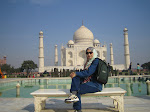



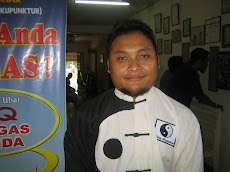

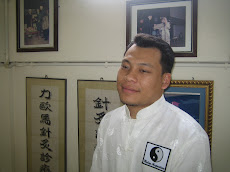
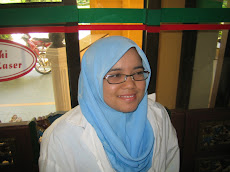


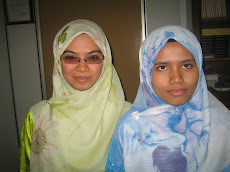

I REALLY APPRECIATE YOUR WORK.
ReplyDeleteGOD BLESS YOU.
REGARDS.
DR. HASSAN
KARACHI,
PAKISTAN
Informative blog.Thanks..
ReplyDeleteGynecologist in Bangalore | Laparoscopic Treatment in Bangalore | IVF Treatment Centre in Bangalore
Thanks for your great information, the contents are quiet interesting.Keep updating more information from your blog.I will be waiting for your next post.
ReplyDeleteIVF Treatment Centre in Bangalore | Testtube Baby in Rajajinagar | Best Uterus Removal Surgery in Bangalore
I'm 15 years old. I was born with HIV my mother passed away because of the HIV infection And I regret why i never met Dr Itua he could have cured my mum for me because as a single mother it was very hard for my mother I came across Dr itua healing words online about how he cure different disease in different races diseases like HIV/Aids Herpes,Parkison,Asthma,Autism,Copd,Epilepsy,Shingles,Cold Sore,Infertility, Chronic Fatigues Syndrome, Lupus Cure,Fibromyalgia,Love Spell,Prostate Cancer,Lung Cancer,Glaucoma.,psoriasis,Cirrhosis of Liver, Cataracts,Macular degeneration, Chrons disease,Infectious mononucleosis.,Cardiovascular disease,Lung disease.Enlarged prostate,Osteoporosis.Alzheimer's disease,psoriasis,Bipolar Disorder,Dementia.,Tach Disease,Breast Cancer,Blood Cancer,Colo-Rectal Cancer,Love Spell,Chronic Diarrhea,Ataxia,Arthritis,Amyotrophic Lateral Scoliosis,Stroke,Fibromyalgia,Fluoroquinolone ToxicitySyndrome Fibrodysplasia Ossificans ProgresSclerosis,Weak Erection,Breast Enlargment,Penis Enlargment,Hpv,measles, tetanus, whooping cough, tuberculosis, polio and diphtheria)Diabetes Hepatitis even Cancer I was so excited but frighten at same time because I haven't come across such thing article online then I contacted Dr Itua on Mail drituaherbalcenter@gmail.com/ . I also chat with him on what's app +2348149277967 he tells me how it works then I tell him I want to proceed I paid him so swiftly Colorado post office I receive my herbal medicine within 4/5 working days he gave me guild lines to follow and here am I living healthy again can imagine how god use men to manifest his works am I writing in all articles online to spread the god work of Dr Itua Herbal Medicine,He's a Great Man.
ReplyDelete